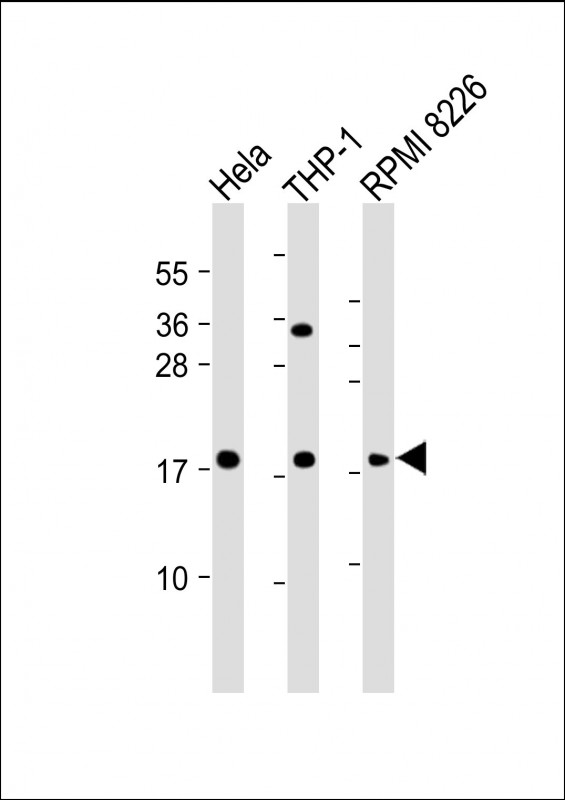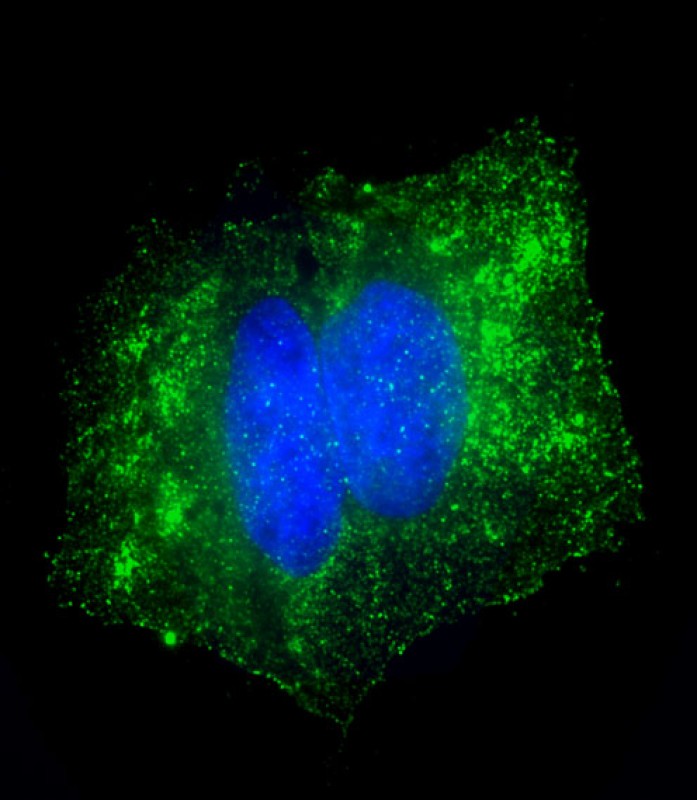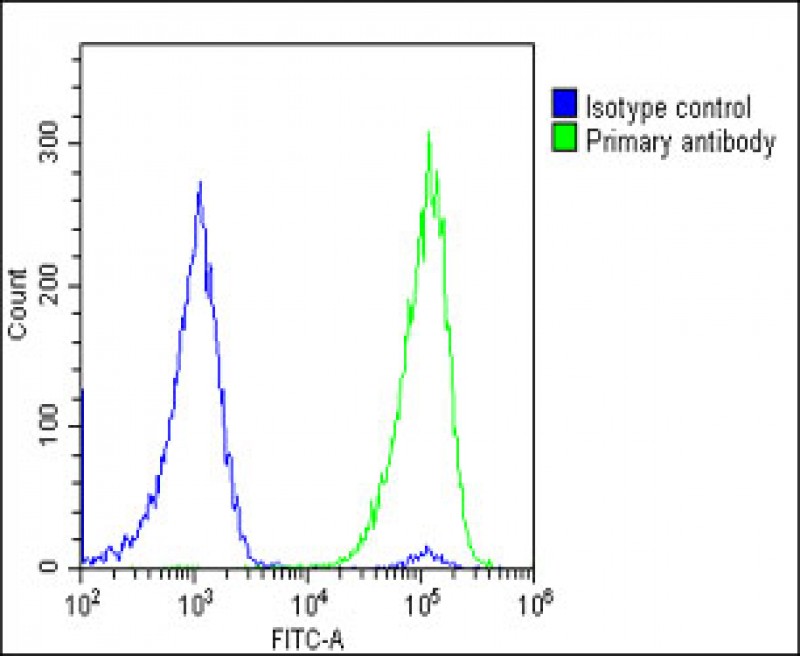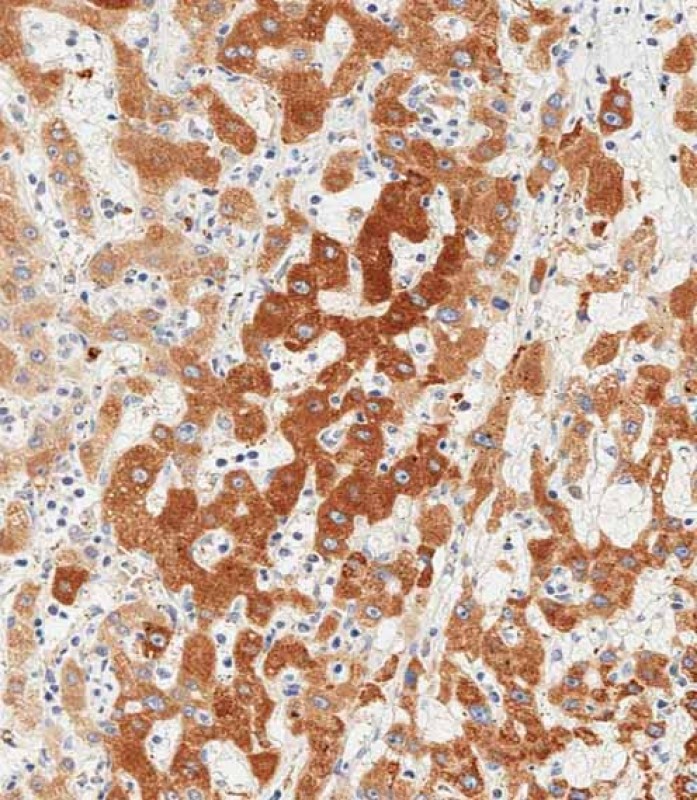



| WB | 咨询技术 | Human,Mouse,Rat |
| IF | 咨询技术 | Human,Mouse,Rat |
| IHC | 1/1000 | Human,Mouse,Rat |
| ICC | 1/25 | Human,Mouse,Rat |
| FCM | 1/25 | Human,Mouse,Rat |
| Elisa | 咨询技术 | Human,Mouse,Rat |
| Aliases | Glutathione peroxidase 7, GPx-7, GSHPx-7, 1.11.1.9, CL683, GPX7, GPX6 |
| Entrez GeneID | 2882 |
| WB Predicted band size | 21.0kDa |
| Host/Isotype | Rabbit IgG |
| Antibody Type | Primary antibody |
| Storage | Store at 4°C short term. Aliquot and store at -20°C long term. Avoid freeze/thaw cycles. |
| Species Reactivity | Human, Mouse |
| Immunogen | This GPX7 antibody is generated from a rabbit immunized with a KLH conjugated synthetic peptide between 73-107 amino acids from the Central region of human GPX7. |
+ +
以下是关于GPX7抗体的3篇参考文献,按文献名称、作者和摘要内容概括整理:
---
1. **"GPX7 expression predicts poor prognosis in gastric cancer patients"**
*作者:Li Y, et al. (2020)*
**摘要**:研究利用GPX7特异性抗体通过免疫组化技术,分析了GPX7在胃癌组织中的表达水平,发现其高表达与患者预后不良及肿瘤转移显著相关,提示GPX7可能作为胃癌的潜在生物标志物。
---
2. **"Antioxidant enzyme GPX7 suppresses ROS-mediated cell death in breast cancer"**
*作者:Wang X, et al. (2018)*
**摘要**:通过Western blot和免疫荧光技术(使用GPX7抗体),研究发现乳腺癌细胞中GPX7表达下调会导致活性氧(ROS)积累,进而促进细胞凋亡,表明GPX7在抗氧化应激中起关键保护作用。
---
3. **"Development of a polyclonal antibody against human GPX7 and its application in colorectal cancer studies"**
*作者:Zhang R, et al. (2016)*
**摘要**:该文献报道了一种针对人源GPX7的多克隆抗体的开发,并通过免疫印迹和免疫组化验证其特异性。应用该抗体发现结直肠癌组织中GPX7表达降低,且与肿瘤恶性程度呈负相关。
---
**备注**:若需获取更多文献或具体实验细节,建议通过PubMed或Web of Science以“GPX7 antibody”为关键词进一步检索。部分研究可能侧重GPX7功能而非抗体开发,需注意筛选。
**Background of GPX7 Antibody**
Glutathione peroxidase 7 (GPX7) is a member of the glutathione peroxidase family, which plays a critical role in cellular antioxidant defense by catalyzing the reduction of hydrogen peroxide and lipid hydroperoxides. Unlike other GPX isoforms (e.g., GPX1-4), GPX7 lacks a selenocysteine residue, relying instead on cysteine for its catalytic activity. It is primarily localized in the endoplasmic reticulum (ER), where it assists in maintaining redox homeostasis and preventing oxidative damage during protein folding.
GPX7 has garnered attention for its dual role in cancer biology, acting as both a tumor suppressor and a context-dependent oncogenic factor. Dysregulation of GPX7 expression is linked to various cancers, neurodegenerative disorders, and metabolic diseases. For instance, its downregulation is associated with poor prognosis in colorectal and breast cancers, while overexpression may promote tumorigenesis in specific contexts.
Antibodies targeting GPX7 are essential tools for studying its expression, localization, and functional mechanisms. They enable techniques such as Western blotting, immunohistochemistry, and immunofluorescence, aiding in the exploration of GPX7's role in ER stress responses, redox signaling, and disease pathogenesis. However, challenges remain in ensuring antibody specificity due to structural similarities within the GPX family. Recent advances in monoclonal antibody development have improved detection accuracy, supporting deeper insights into GPX7's therapeutic potential as a biomarker or drug target.
×